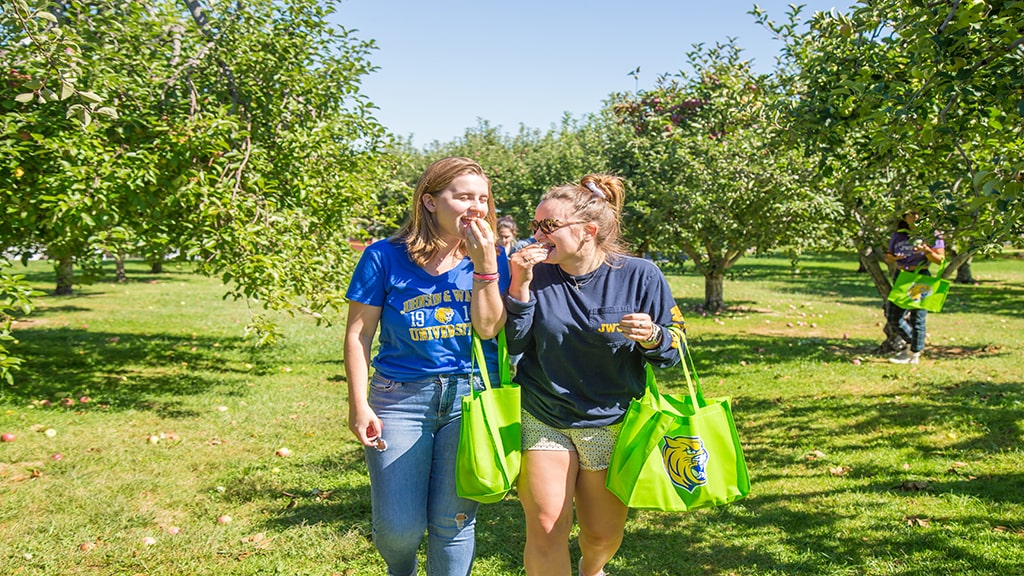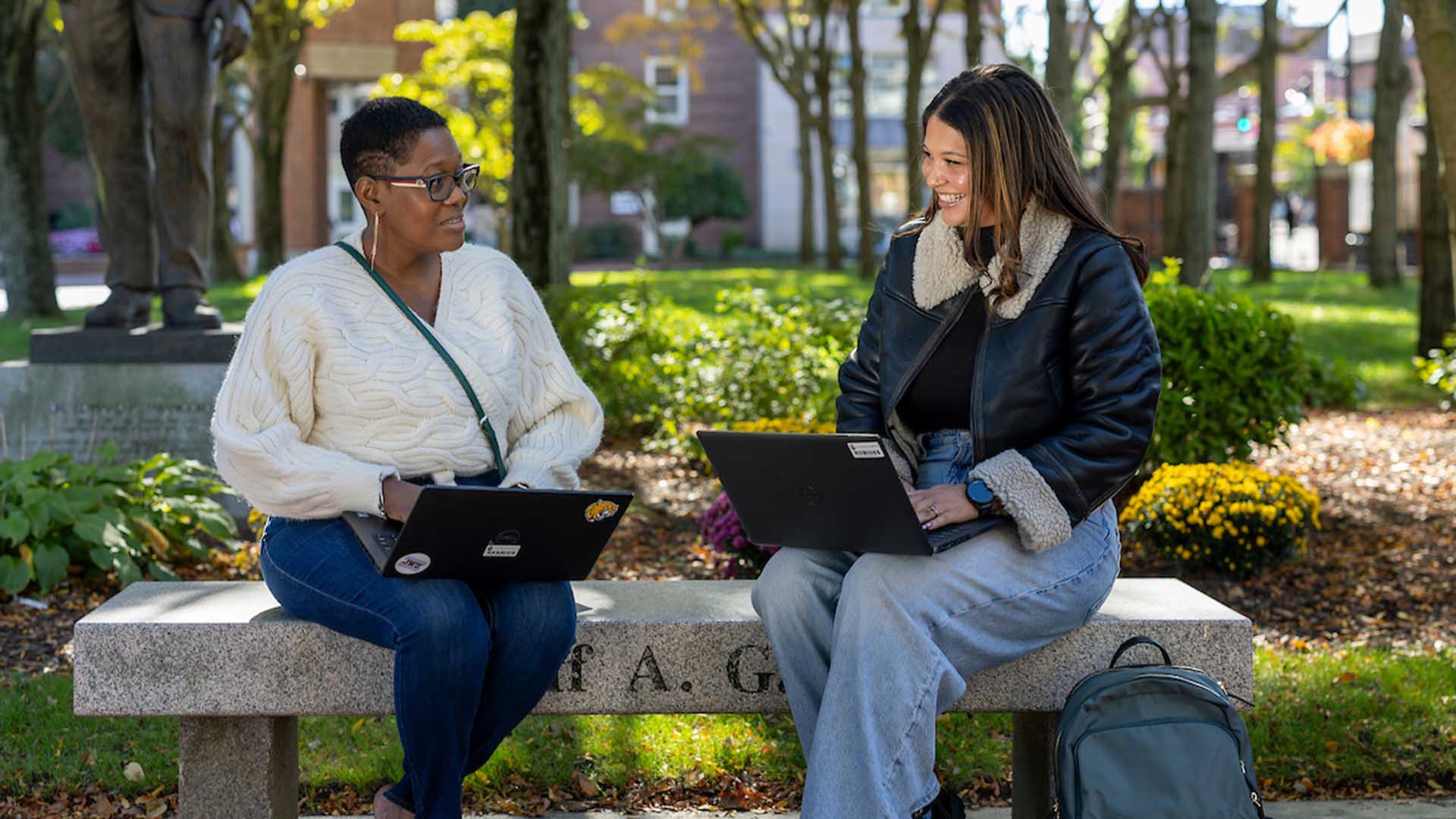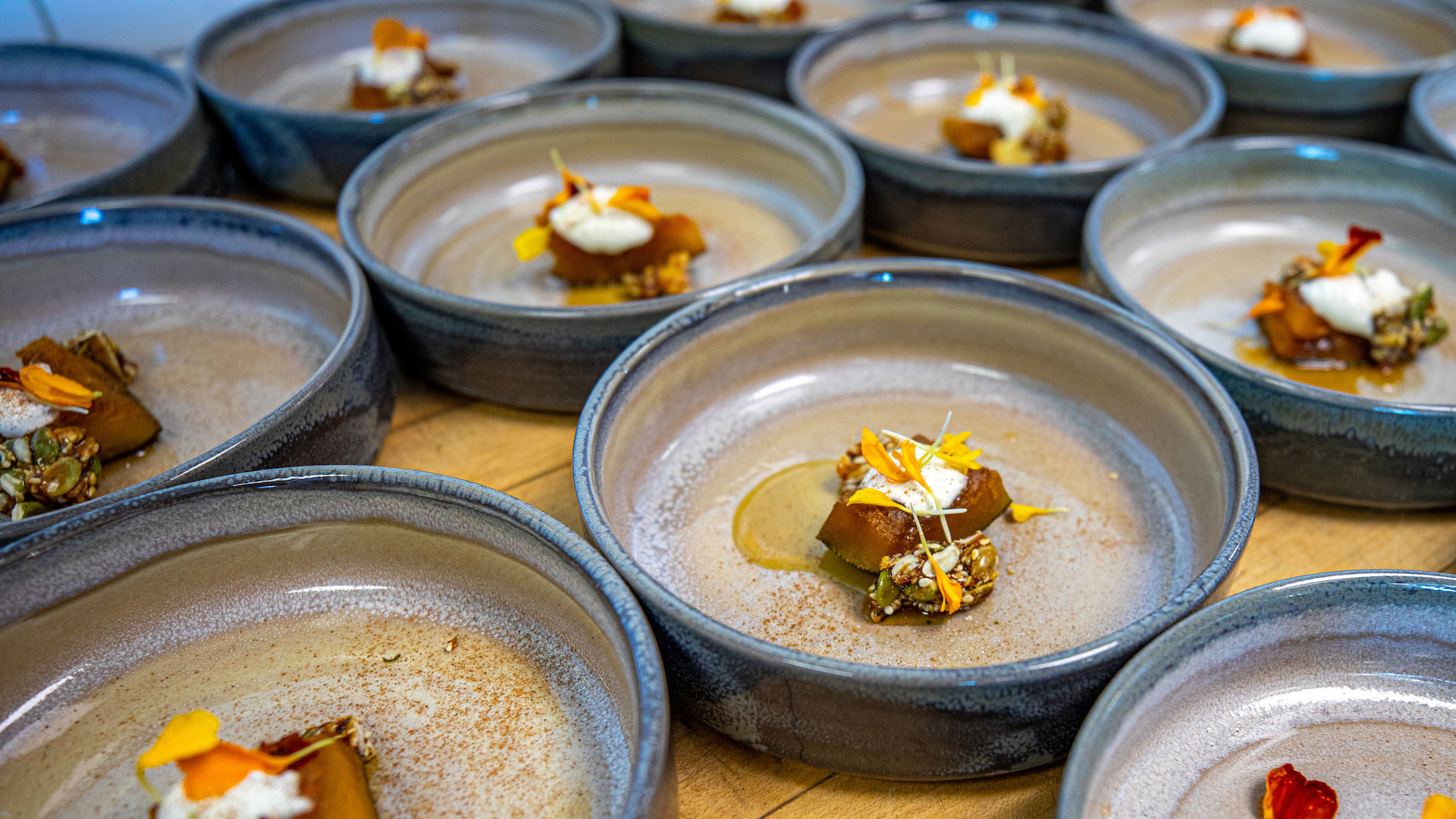Surprising Ways Johnson & Wales is a Sustainability Superstar
During my sophomore year, I took a class that changed how I look at sustainability, Earth in Peril. I learned about environmental issues, the relationship between humans and nature and how worldviews affect how we treat the environment. I gained a greater appreciation of nature and am now more aware of how my choices affect the environment.
Still, even as a JWU student, I didn’t know about all the amazing environmentally conscious things happening right on campus!
While the idea of sustainability isn’t new, it seems to be trending. Add to that, the Pew Research Center reports Gen Z is carrying the (solar-powered) torch. Climate change is becoming a more pressing issue. Many companies, universities and other institutions are increasing their sustainability practices — but Johnson & Wales University has been ahead of the curve. Since 2013, JWU has been working to decrease its carbon footprint through many campus initiatives. Here are some ways (there are so many!) that JWU shines as a sustainable superstar.
Many companies, universities and other institutions are increasing their sustainability practices … but Johnson & Wales University has been ahead of the curve.
Bright ideas in energy conservation
Better light bulbs
Since 2013, JWU has installed over 40,000 LED lights in its facilities. This small change reduced energy use by 16% and saved more than $4 million. It even earned the Providence Campus the Energy Excellent Award in 2017.
Read More: Energy Conservation at JWU
Wind power
The university partnered with Green Development LLC to build two wind turbines on the Harborside campus. In October 2021, JWU held an event for students to sign the wind turbine before it went up in December. This event brought students together to be a part of making JWU a more sustainable campus.
Efficient buildings
Often, sustainability is a long game. Since 2015, JWU has made continuous improvements to the Downcity Academic Center in Providence. It has replaced boilers and renovated spaces with sustainable practices front of mind. Over this timeframe, the university reduced energy consumption by 44.6% in that building. This dedication earned the university the 2021 RePowerPVD award from the City of Providence.
Greener facilities & grounds
Not only does JWU have a beautiful campus, but these buildings are LEED Gold-certified. Being LEED certified means that the U.S. Green Building Council recognized these buildings to be an example of sustainability. The LEED-certified buildings on the Providence campus are:
- Cuisinart Center for Culinary Excellence
- Grace Welcome Center
- Center for Physician Assistant Studies
- John J. Bowen Center for Science and Innovation
The Center for Physician Assistant studies is not only LEED-certified, but it also earned the 2015 Smart Growth Award as an Outstanding Smart Growth Project.
Read More:
>>> JWU Sustainability: Facilities & Grounds
>>> JWU Providence Earns 2020 Tree Campus USA® Recognition
Recycling and waste reduction resources
Fill it forward
The Fill it Forward program encourages students and staff to use reusable water bottles. You'll find filling stations in all residence halls, academic buildings and other spaces throughout campus.
Eliminating single-use products
Not only is JWU encouraging the use of reusable cups, but they are also doing it themselves. Single-use cups and utensils have also been removed from dining halls.
Online recycling guide
If you are unsure whether an item is recyclable or not, JWU offers a link to the Rhode Island Resource Recovery Corporation’s A-Z item search on their sustainability page. Whether you are in your dorm or walking to class, this guide is there for you to double-check if that cup can be recycled or not, as each state has its own guidelines.
Read More:
>>> JWU Prepares for Sustainable Futures
>>> Recycling & Waste Reduction at JWU
Opportunities to make a change at JWU
Academics
Regardless of your major, you can take sustainable classes to fulfill an academic requirement or use your free electives. For example, many students need to take a science elective to graduate. One of the classes offered is environmental science, where students learn about the impact of the human population on the ecosystems on our planet. Students are able to discuss many topics such as how sustainability can be achieved in society, water or resource use, energy, and use of land and agriculture.
Another course students must fulfill during their time here at JWU is two Integrative Learning classes, one during the sophomore year (I took Earth in Peril, as discussed earlier) and one during the senior year.
Clubs and Orgs
Between clubs and jobs in the ECO office, there are many ways to get involved if taking a sustainability class isn’t for you.

Student Activists Supporting Sustainability (SASS)
SASS is a fast-growing club revolving around students’ desire to create a healthier, greener, more sustainable world. Some of the events offered by this club include making compostable tea bags, hosting guest speakers, and taking trips where students can learn more about sustainability and how to implement it in their lives.
Bee the Change
This is JWU’s apiary society, where students are focused on saving honeybees and other pollinators. They do this through education, honey sales, and other events. Bee the Change also oversees two hives and co-sponsors the two raised garden beds at Harborside.
View this post on Instagram
Energy Conservation Office (ECO)
JWU Providence’s ECO has many opportunities for students looking to get involved. ECO offers work-study positions and is always looking for volunteers. They also plan many events such as neighborhood cleanups, tree plantings, farm visits and sustainability fairs. Their Instagram also offers many tips on making sustainable lifestyle choices and getting involved.
JWU has many opportunities for students to get involved in creating a more sustainable campus. Whether you’re looking to take classes or join a club, there’s something for everyone! Join other students in creating a greener, happier planet at Johnson & Wales.



